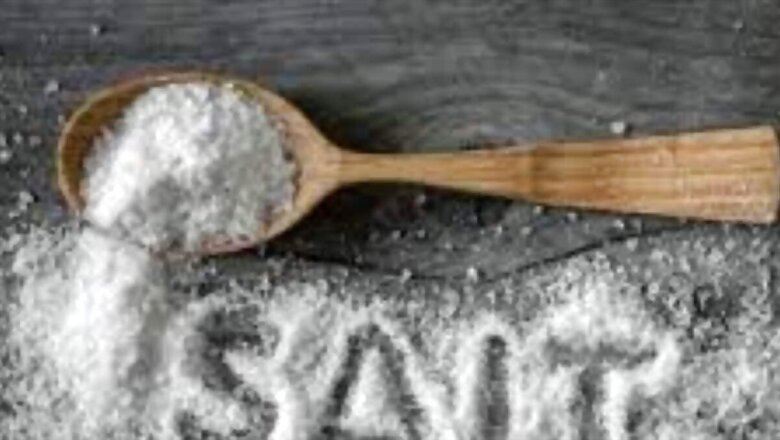
views
Salt is an essential ingredient in our meals, playing a vital role in muscle contraction, nerve activity and maintaining fluid balance. However, when consumed in excess, it can do more harm than good. With the prevalence of processed and packaged foods, many people today find themselves consuming far more salt than necessary, leading to serious health risks.
Want to learn more about the hidden dangers of high salt intake? Let’s explore the reasons why reducing your salt consumption is essential for a healthier future!
Causes hypertension
One of the factors contributing to high blood pressure is excessive salt consumption. When the body takes in too much salt, it retains more water to help dilute the salt in the bloodstream. This increase in blood volume creates additional pressure on the walls of blood vessels, resulting in hypertension. Over time, uncontrolled hypertension can significantly raise the risk of heart disease and stroke, as it damages blood vessels, heart tissues and other organs. Reducing salt intake can effectively lower blood pressure and associated health risks.
Increases risk of cardiac issues
In addition to raising blood pressure, salt has an indirect effect on heart health. High salt consumption has been linked to conditions such as heart attack and heart failure. When the heart is required to pump blood more forcefully to maintain circulation, it can become overworked. This strain may lead to thickening of the cardiac muscles, thereby increasing the risk of heart failure.
Reduces calcium in bones
Excessive salt intake can also have detrimental effects on bone health. When salt levels are high, the body tends to excrete more calcium through urine. Over time, this loss of calcium — a vital mineral for maintaining strong bones — can weaken bone structure and heighten the risk of fractures and conditions like osteoporosis. Moderating salt consumption can help preserve bone health and reduce the likelihood of calcium deficiency.
Strains kidney function
The kidneys play a crucial role in filtering excess fluid and salt from the blood. When salt intake is excessive, the kidneys must work harder to eliminate the surplus. Prolonged high salt consumption can put a strain on the kidneys, potentially impairing their ability to maintain the body’s fluid and mineral balance. This may lead to fluid retention, resulting in swelling in the hands, feet, or legs (oedema).
















Comments
0 comment